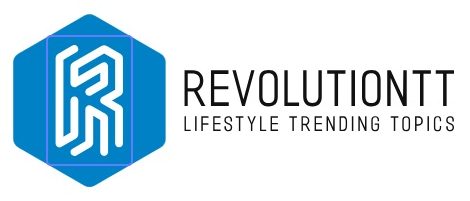Working in Business Intelligence: Everything You Wanted to Know
Business operations have become increasingly complex over time, which has led to less time for innovation and research. Large enterprises today are much more focused on winning the competition. As a result, this requires that they get access to lots of meaningful insights that they can use to ultimately meet these goals. But with more and more data now gathered on a daily basis by companies of all sizes and in all industries, real-time analysis has become increasingly difficult. At this point, companies need to consider whether it is necessary to use technology that has been designed to analyze data and predict market trends with just a few clicks. This is where business intelligence begins to play a huge part in running a modern company today.
Business intelligence refers to several means, methods, and methodologies that are used by organizations and companies to analyze data that is related to the business. Business intelligence careers are becoming more and more in-demand and a growing number of companies of all sizes and in all industries are hiring business intelligence professionals to get a clearer view of past, present, and future business operations. Business intelligence technologies involve a range of different activities such as text mining, performance management, data mining, process mining, complex event processing, analytics, reporting, online analytical processing, predictive analysis, prescriptive analysis, and more.
What Education Do You Need?
If you are interested in getting into a business intelligence career, one of the first questions that you might ask is what qualifications you need. Business intelligence analysts are usually required to have at least a bachelor’s degree in a relevant subject. Business, statistics, management, economics, IT, and accounting are all popular degree major ideas that you may want to consider if this is your chosen career path. If you are interested in more high-profile career options in business intelligence, then you may be required to earn a more advanced degree such as a master’s degree in business administration (MBA) or a master’s degree in business intelligence, business analytics, or data science.
You can learn more about the subject of business intelligence and what to expect from your studies by researching universities that offer this program and finding out more about the curriculum offered. This blog post on business intelligence and organizational strategy is an interesting one if the subject appeals.
Career Opportunities in Business Intelligence
There are lots of different reasons to think about working in a business intelligence career. Business intelligence is an area that offers high demand, a high average annual pay, and plenty of opportunities for career development. If you want to become a suitable candidate to work in this field, you will need to work on developing a strong skill-set. You will need to be somebody who is eager to learn more and has a strong ability to multitask.
Business intelligence is an ideal career choice for somebody who wants to get into an exciting career and work in a range of different roles. There are lots of different industries that require business intelligence professionals, with pharmaceutical and software some of the best industries to choose. Business intelligence professionals are needed in a wide range of industries including manufacturing, retail, communications, healthcare, financial services, education, and insurance. If you are considering working in business intelligence, some of the main career options to consider include:
Business Intelligence Analyst
Business intelligence analysts are responsible for studying and understanding a wide range of factors including business processes, data warehouses, production systems, and departmental databases. They put this knowledge to use in a wide range of different ways within businesses including developing and improving business intelligence tools, projects, and solutions.
Business Intelligence Project Manager
A business intelligence manager reports the data that relates to business intelligence tools and solutions that a company uses. The professional working in this role is responsible for coordinating with several different internal departments within the company while working towards developing a range of suitable business intelligence solutions. The business intelligence project manager is also responsible for identifying and working on any areas in business intelligence that could be improved.
Business Intelligence Manager
A business intelligence manager is responsible for the design and implementation of business intelligence systems and software. They also integrate data warehouses and databases. Business intelligence managers are responsible for the testing of business intelligence solutions and tools to identify room for improvement. They also collaborate with developers on a frequent basis.
Business Intelligence Consultant
A business intelligence consultant works in a role where they are responsible for utilizing business intelligence solutions to come up with new business strategies. Business intelligence consultants are responsible for developing and coming up with solutions that make information easier to analyze and handle. This role combines business management and technology and is essential to improving the efficiency of the organization.
Business Intelligence Administrator
Business intelligence administrators are tasked with the analysis, utilization, and presentation of data. This role involves working on database management software and using a range of business intelligence systems in order to get a better overview of a range of different factors such as consumer behavior, economic shifts, competition, and anything else that will likely impact the business.
Business Intelligence Salaries
The salary that you can expect to earn while working as a business intelligence professional can vary a lot depending on the specific role worked. Typically, professionals who work in this field can expect to earn an annual average salary between $70-90k. Business intelligence analysts are paid, on average, an annual salary of around $67k.
Business Intelligence Career Outlook
Big data is only growing, and as a result, there are more career opportunities in business intelligence than ever before. There is currently quite a severe skills shortage in the world of data science and business intelligence, and vacancies are being created faster than they are being filled. As a result of this demand, now is a great time to consider getting into a career in business intelligence if you are looking for work that is exciting and lucrative, offers high job security, and has several career opportunities to consider.
What Skills Do You Need to Work in Business Intelligence?
If you are considering getting into a career in business intelligence, there are several skills that you will need to work on developing. Some of the main soft skills and hard skills that are required of business intelligence professionals include:
Business Acumen
Any business intelligence professional should have a strong ability to understand the business domain that is specific to their particular industry and organization. Successful business intelligence professionals need to have a solid knowledge of the industry that they are working in. They should also be knowledgeable about the business model, strategy, and objectives for their organization. Along with this, they are also expected to become well acquainted with the strategy of the business and have a solid understanding of its competitors. Possessing a strong business acumen will benefit business intelligence professionals, as they are required to take a top-down approach while they work to translate the goals and strategies of the organization into KPIs, or key performance indicators.
Data Analysis
An ability to understand and convert data into insights is an essential skill for any role in business intelligence. To become successful in this field, it is important for professionals to be able to think in a conceptual manner and use high-level data models to develop concept maps relating to the organization. Along with this, business intelligence professionals should have a good understanding of how data moves from operational source systems throughout the entire company to the point where it is put to use in making key decisions.
Toleration of Uncertainty
Often, business intelligence scope and requirements are not well-defined up-front. This is because typically, they tend to only emerge once further information has come to light through data analysis. In addition to this, the structure and quality of the data are not often something that is known at the start, which means that business intelligence professionals need to have the soft skills necessary to confidently manage even when things are ambiguous and uncertain. One of the main signs of a good business professional is the ability to create a sense of structure and stability even if this is not provided by the data.
Big Picture Thinking
An ability to see the bigger picture while also not losing sight of the finer details is one unique skill that you will be required to develop as a business intelligence professional. In many business intelligence roles, you will be required to work with the smallest amounts of data and it’s important that you can understand the smaller details such as where data is sourced, who owns it, who uses it, how it is used and more. But at the same time, business intelligence professionals also need to be able to apply this information to the bigger picture, considering a range of important factors such as the vision and missions of the organization and how this is translated into the various objectives and strategies used to come up with measures, actionable metrics, and KPIs.
Technology Skills
Most employers look for candidates that are highly skilled in technology when seeking out business intelligence professionals. You may be more likely to find work in this area if you are highly skilled in business intelligence-specific software and analytics programs. It’s often required or highly preferable for business intelligence to have skills that are better than average in Microsoft Office applications, especially when it comes to Microsoft Excel, since this program and similar are often used to analyze and pivot data. Along with this, many employers will look for professionals who are proficient in Microsoft SQL or another query language. Due to the fact that these roles have such a data-focused and hands-on nature, the ability to see and analyze data is crucial. You may also find that many employers require business intelligence professionals to be skilled at using certain popular data analysis software applications.
Reasons to Pursue a Business Intelligence Career
When it comes to your future career, there are lots of reasons to consider business intelligence roles. If you possess or are willing to develop some of the above skills and interested in the education that you need to work in business intelligence, then this career might be an ideal fit for you. Some of the main reasons to consider a business intelligence career include:
Job Security
As organizations become more and more data-centric, business intelligence professionals have become more and more in demand. Business intelligence roles are relevant to every industry in the world today since it provides a medium between business thinking and technology understanding. As the volume of data that companies collect continues to grow, so does the need for the professionals who are able to understand and make sense of it.
Great Career Opportunities
Pursuing a business intelligence career presents a wide range of exciting and satisfying career opportunities. Business intelligence consultants are essential for making decisions on all levels within businesses and are often held in high value by senior stakeholders. Business intelligence professionals derive insights from data and often work on exciting projects and developments towards developing new organizational strategies or technologies.
Career Advancement Prospects
There are lots of opportunities to grow and take your career to the next level when you work in business intelligence. When you have the qualifications needed to work in these roles, there are lots of entry-level positions that you can choose from depending on your unique interests and skills. When you have gained between two and four years of experience in the field, you can easily move into more senior career positions including positions where you will be able to manage your own projects and teams.
Today, business intelligence is quickly becoming one of the most sought-after career options in the business world. With companies collecting huge amounts of data, there is a growing need for professionals who have the ability to understand and interpret it. Business intelligence offers many different roles and is relevant to a huge range of different industries.


